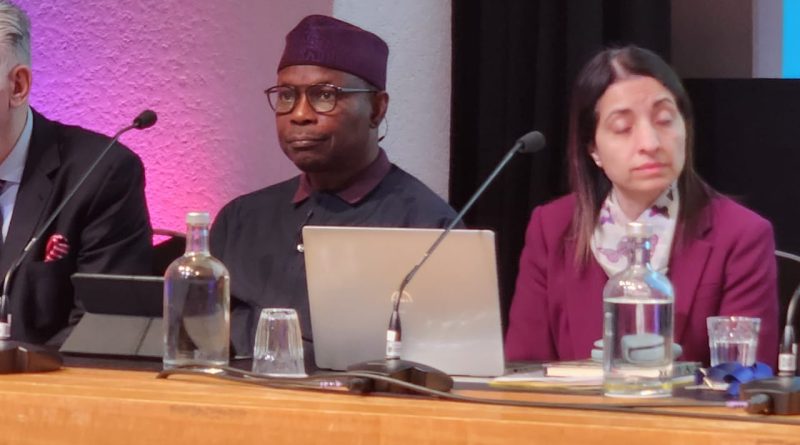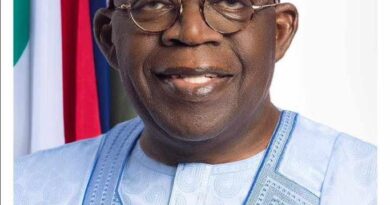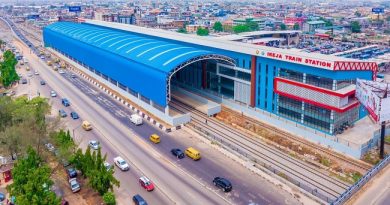Japa Syndrome: Salako Advocates for Ethical Workforce Migration At The UK-Africa Health Summit
Nigeria’s Minister of State for Health and Social Welfare, Dr. Iziaq Adekunle Salako, has said that Health workforce migration from many parts of Africa which has increased in the last few years is a critical concern worsening the fundamental problems of shortage of skilled healthcare professionals with adverse impacts on on the Continent’s health systems. This challenge, Salako noted, is particularly intense in Nigeria being the highest healthcare workforce exporting country in Africa with UK the key destination. He said it is vital that such migration is structured, fair, ethical and mutually beneficial, otherwise the health system of source countries like Nigeria will be adversely affected.
Salako stated this at the UK-Africa Health Summit on March 18, 2025 which was held at the Royal College of Physicians, London. The summit was organised by the Global Health Partnership (formerly THET) where global health leaders, policy makers, change agents and critical stakeholders met to foster greater collaboration and multi-sector efforts aimed at transforming health systems and strengthening partnerships between the UK and African countries. He said between 2020 and 2022, there has been a 145%, 70% and 900% increase in the number of doctors, nurses and midwives and laboratory scientists respectively that requested for letters of good standing from their regulatory bodies in order to migrate out of Nigeria. 68% of the doctors and 52% of the nurses and midwives migrated to the UK with the USA and Canada being other major destination countries.
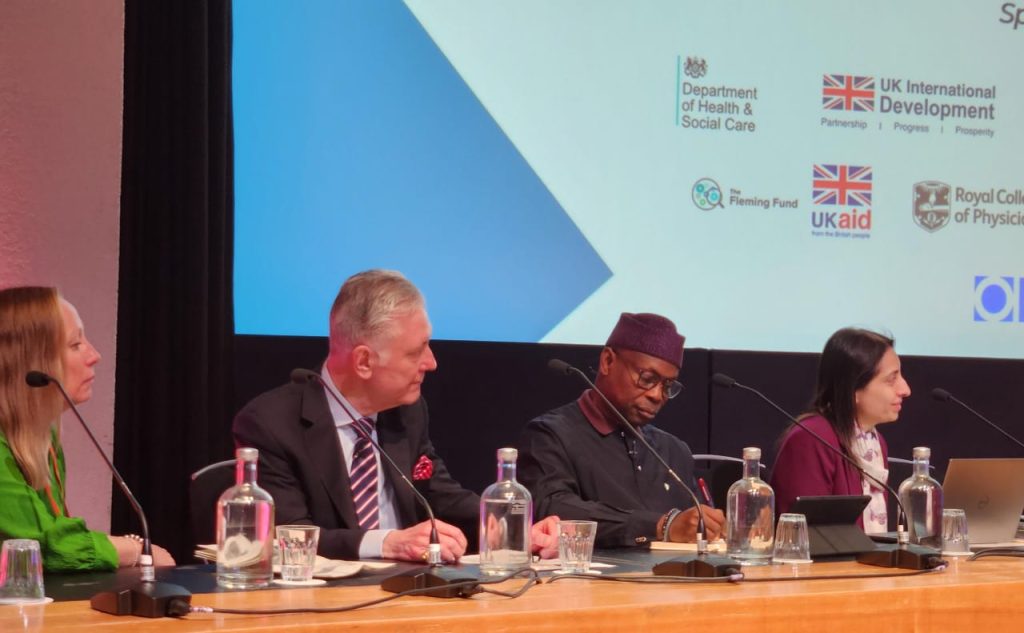
“Nigeria over the years have enjoyed remarkable partnership and close relationships with the UK at the diplomatic, public health, education, business, security, humanitarian and other strategic levels. The Foreign, Commonwealth Development Office (FCDO), has been actively engaged in Nigeria’s development demonstrating a long term commitment to the country’s growth and stability. Nigeria on her part contributes to the development of UK through trade, investment, schooling, medical tourism, and thorough the vibrant UK based Nigerians who constitutes a significant part of the UK workforce and contributes to tax revenue.
Health for all, a global agenda anchored on the Sustainable Development Goals is one that Nigeria subscribes to. The President of my country, President Bola Ahmed Tinubu GCFR has identified the health of Nigerians as an urgent matter of right and has anchored the universal health coverage agenda on the Health Sector Renewal Investment Initiative as the enabling mechanism to save lives, reduce physical and financial pain and produce health for all Nigerians. In implementing this agenda and achieving significant turn around in the health indicators for my country, the pooling of resources, expertise and services within and beyond the border of Nigeria is imperative. Nigeria as a responsible member of the global community is therefore prepared to support the “shared solutions” concept as a tool to achieve health for all of humanity with a priority attention to national priorities and local contexts.
“In the effort to ensure universal health coverage, the government of President Bola Ahmed Tinubu is diligently implementing the National health act 2014 which provides that at least 1% of the consolidated revenue in addition to contribution from sub-national governments, grants from international donors and the private sector is pooled together to provide a minimum package of health services. This basic healthcare fund is being deployed to strengthen primary healthcare, ensure social health insurance for the poor and vulnerable and provide national emergency medical services. Health workforce migration from many parts of Africa which has increased in the last few years is a critical concern worsening the fundamental problems of shortage of skilled healthcare professionals with adverse impacts on our national health systems. This challenge is particularly intense in my country being the highest healthcare workforce exporting country in Africa with UK the key destination. Between 2020 and 2022, there has been a 145%, 70% and 900% increase in the number of doctors, nurses and midwives and laboratory scientists respectively that requested for letters of good standing from their regulatory bodies in order to migrate out of Nigeria. 68% of the doctors and 52% of the nurses and midwives migrated to the UK with the USA and Canada being other major destination countries.
“An essential pillar of our collaboration with the UK Government lies in the area of trade in health services and the intersection with migration policy. The movement of healthcare professionals across borders has been a critical factor in strengthening health systems, fostering knowledge exchange, and addressing workforce shortages. However, it is vital that such migration is structured, fair, ethical and mutually beneficial, otherwise the health system of source countries like mine will be adversely affected. In the discussion of a shared solutions for universal health coverage therefore, ethics, bidirectional benefits and mutuality must form the cornerstones of such discussions”, Salako noted.
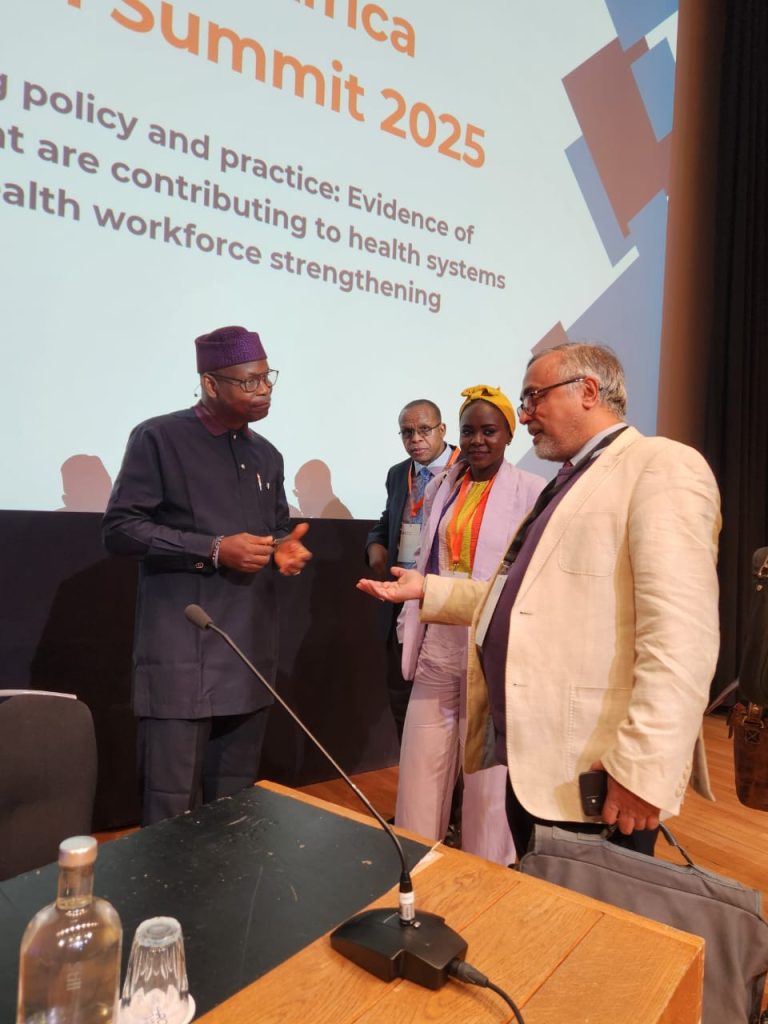
He said Nigeria has developed a National Policy on Health Workforce Migration as a forward looking mechanism to link migration with the UCH aspirations of the government, makes the best use of in-country health workers, harnesses out-country health workers’ contribution to strengthen her health system, promotes bilateral and multilateral agreements on cross border health workers recruitment, advances whole of society approach and supports data driven decision making.
“We are committed to engaging with partners like the United Kingdom to develop frameworks that support skills exchange, capacity building, sustainable workforce development and the health security of our peoples. My country currently faces significant shortage of health workers as a result of migration. We will like to see more robust, legally binding bilateral agreements and investment in training programs by destination countries like the UK in order to ensure that migration contributes more positively to both destination and source countries. We call for more collaboration and more investment by destination countries on capacity building and training, healthcare infrastructure development, healthcare financing and research in order to optimize mutual benefits of health workers migration. It is in the interest of destination countries that healthcare professionals from source countries are well trained.
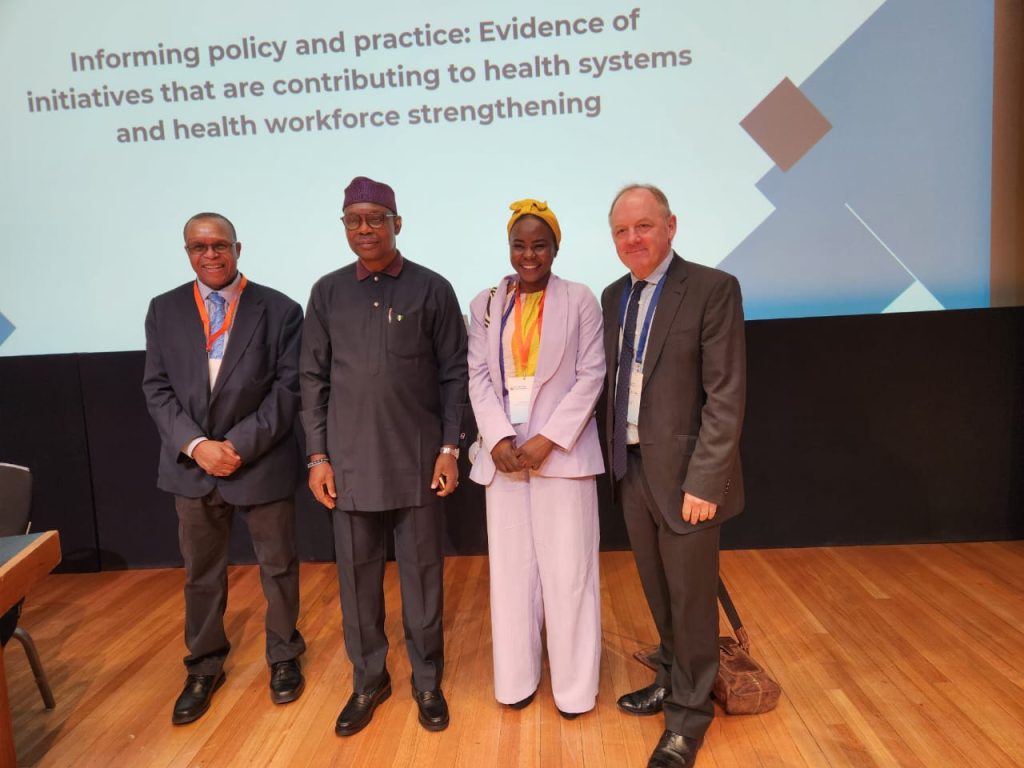
“Nigerians health workers in the UK and other destination countries have been at the forefront of promoting partnership and skills transfer, providing expert services and mobilizing resources to support health development initiatives in the country. A good example is the Strengthening Collaboration and Advancing Clinical Excellence (SCALE) programme, an initiative of the Medical Association of Nigerians Across Great Britain (MANSAG) to effect collaboration between five UK Royal Medical Colleges, the National Postgraduate Medical College of Nigeria and some federal teaching hospitals in Nigeria. The Federal Ministry of Health and Social Welfare welcomes this initiative and will give all needed support to ensure its actualization and full implementation. We will ensure continuous robust diaspora engagement as a critical element to making partnership with destination countries like UK works more efficiently”, the Minister added.
He said underfinancing is a significant challenge against the UCH agenda which is being exacerbated by the freeze in aids by the US and aids cut by key donor countries like the UK, France, Germany and Netherlands. He noted Nigeria considers this a wake up call for African countries to take more ownership of the health of their people, work towards self sufficiency by coming up with innovative strategies to mobilize more domestic resources while deploying such resources more efficiently.
“For Nigeria, while appreciating donor countries for their support over the years and strongly calling for a reversal of the aids cut or freeze, we have decided to take our fate in our hands by exploring other alternatives to ensure that the health of Nigerians do not suffer. Health aids has been with us for decades and has been shown to be one of the best interim tools with which the health status of low income groups could improved. We advocate for mutual discussion, mutually agreed phased withdrawal of aids and alternative interventions to improve the socio-economic conditions of aids recipient countries”
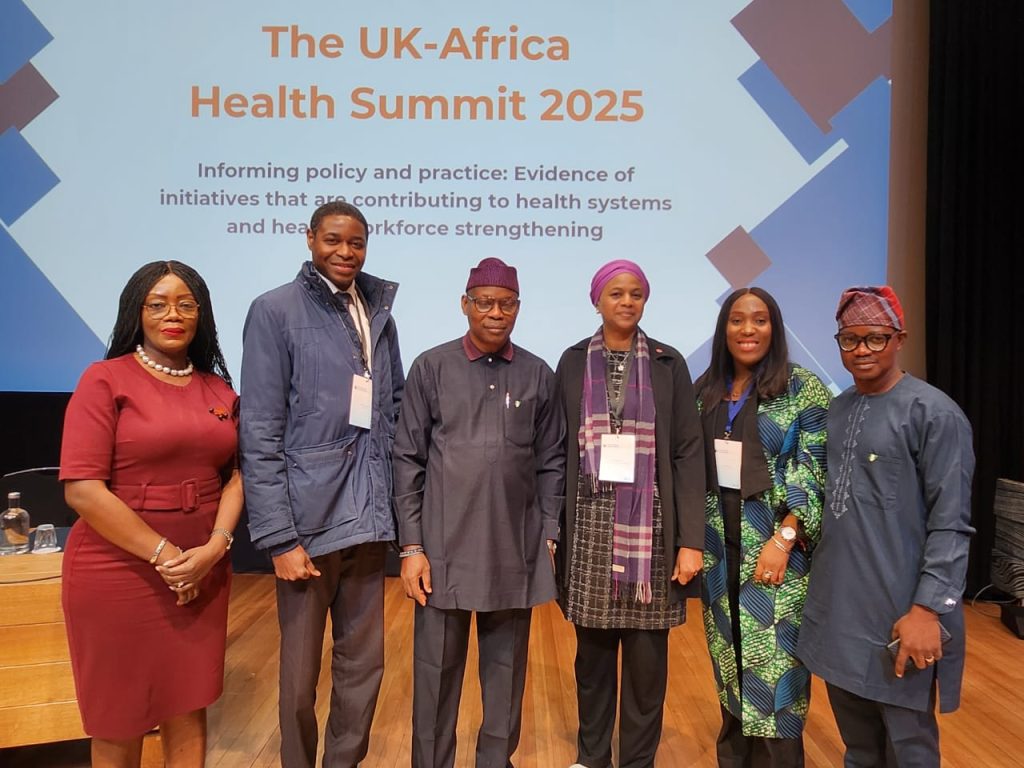
He however acknowledged the contribution of the global Health Partnership (formerly Tropical Health Education Trust) and the Global Health Workforce Program funded by the UK Department of Health and Social Care for its contribution to strengthening the Nigeria health system through granting, exchange of skills, capacity building of various professionals, antimicrobial stewardship and so on. He added that Nigeria is committed to mobilize domestic resources for the sustainability of the program. He said our world of today can not operate within borders on issue of health and that we must continue to cooperate, collaborative and build mutually rewarding partnership to protect humanity from public health threats, including future pandemics and to ensure we build a resilient global health system for global security, economic stability and the well being of all.
Salako later met with the Nigerian health professionals in the UK led by the Medical Association of Nigerian Across Great Britain and Nigeria Nurses Charitable Association to discuss a new initiative tagged Strengthening Collaboration Accelerating Clinical Excellence (SCALE) designed to leverage diaspora health workforce to strengthen Nigerian health system. The WHO, World Bank, Global Health Partnerships and 5 Royal Colleges took part in the discussion and pledged to support the implementation of SCALE.

